Philosophy 101: How Original are the Greeks?
Before I proceed to discuss how to read another key author in philosophy (this time it will be by Plato's student, Aristotle's Ethics), it is important that I introduce first the context of Aristotle. Hence, in this post, I will discuss a bit about the origins of greek thought.
What is Philosophy? To ask “what philosophy is” is to begin a task. For to ask “what is?” is already to begin to philosophise, to respond to that grandest human task of knowing everything.
The Greeks were the first to respond to it by giving it a name, Philosophia. Pythagoras ascribed to it a kind of love, Philia, found only among kindred spirits (friends) who bask in that search for knowing the source of all, for Sophia, for wisdom. Henceforth, one who dares search the heavens for answers was named a philosopher, a lover of wisdom.
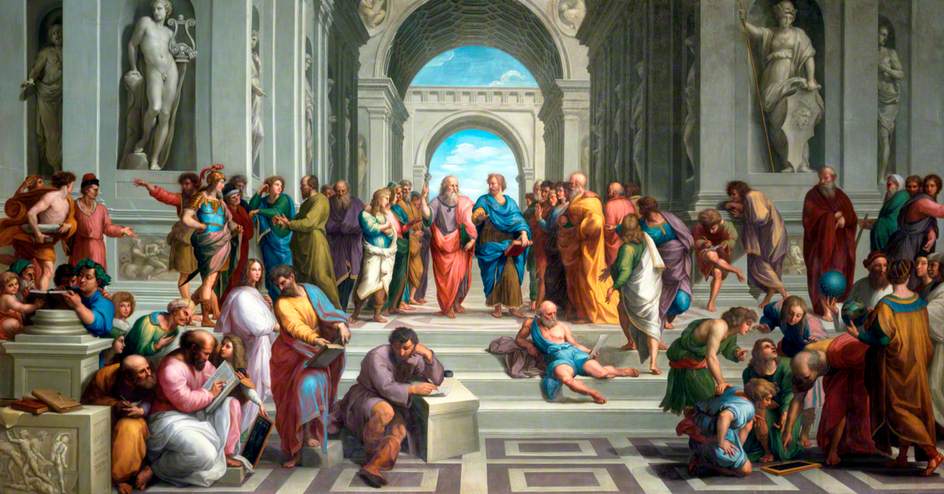
The Renaissance painter, Raphael's fresco in the papal apartments known as "School of Athens" is a tribute to Greek heritage as source and inspiration of the Humanism and Scientific Revolution of Renaissance.
The first among them were Astronomers, fascinated by the regularities of the heavens. The regular motion of the moon, the sun, and the stars hinted a possible “order” in an otherwise purposeless universe. Thereby, cosmology as the study of the cosmos (Gk. “order”), of the underlying order of the universe, commenced. It commenced by asking that quintessential greek question, the first and penultimate philosophical question that “will always be raised and will always be a matter of perplexity”: ti to on, What is being?
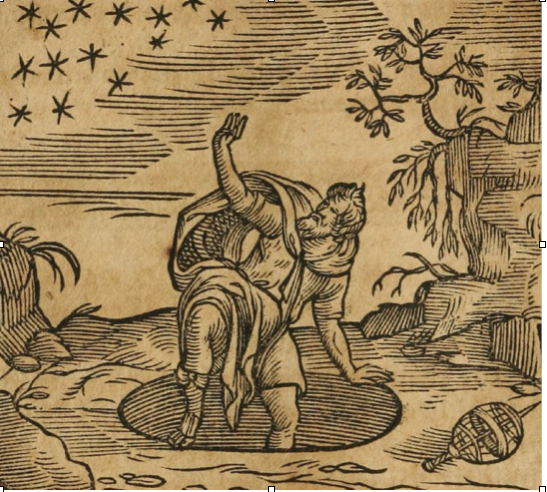
Aesop's Fables tells the tale of "The Astronomer who fell into a well". This astronomer is Thales of Miletus, customarily known as the first greek philosopher.
Indeed, the greeks were so perplexed that we hear of the very first philosopher, Thales, who, overly perplexed by the heavens, looked up far too often and far too long that he fell into a well. Seeing him fall, a whimsical maid laughed at him and told him that while he passionately wants to know all things in the universe, the things in front of his very nose were unseen by him.
This greek venture into philosophy is usually accounted for as one that springs from a pervading tension between two greek impulses, between Logos and Mythos, between Reason and Superstition, between Science and Religion.
Neither Myth nor Science was originally greek. About a century before the earliest greek poets, the brahmins of the indus valley have already codified myths in their vedas. Likewise, the first scientific impulse did not come from Greece. What inspired the earliest greek mathematicians and astronomers were geometrical systems crafted by the priestly caste of Egypt about a century before Greece.
Indeed, neither Myth nor Science was born in the city-states of Greece, yet the greeks occupy a privileged place in the history of both Myth and Science. What was original about the Greek approach to Mythos and Logos?
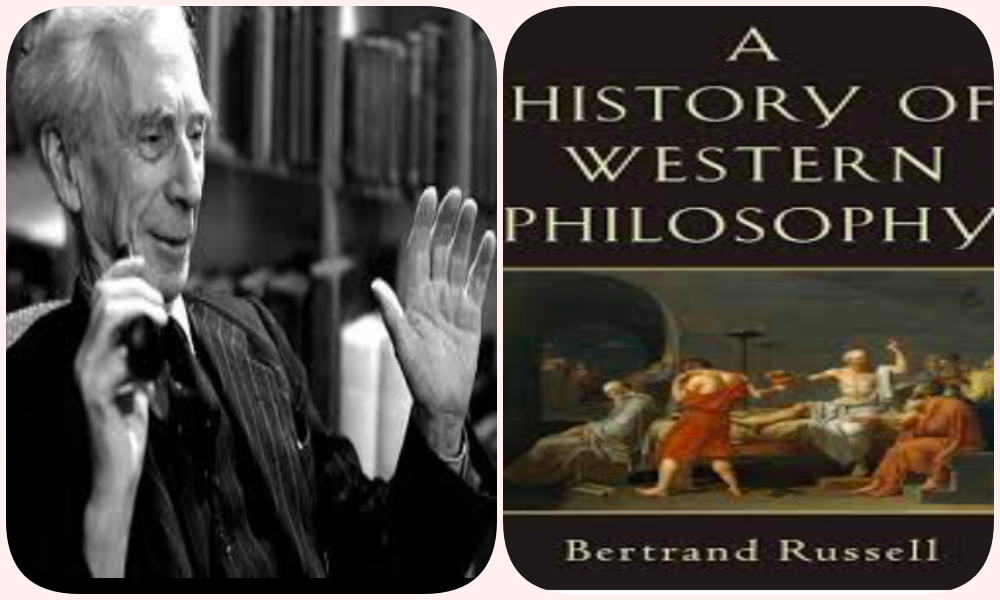
This book earned the mathematician/philosopher, Bertrand Russell, a nobel prize for literature. It's worth, however, as a book on the history of philosophy is debatable.
Bertrand Russell, in A History of Western Philosophy, describes philosophy as a “No Man’s Land”. By this he meant that philosophy occupies a space intermediate between Myth and Reason, between Science and Theology. Further, this philosophical space is hostile, always prone to attacks from scientific and the religious sentiments. To him, it is a space where insoluble questions rebound and anyone who ventures into it must only learn to live a life without certainty.
This hostile space is where the originality of greek philosophy resides. One must only examine the dominant polarities among the pioneers of greek thought to make sense of it. To locate exactly where this originality resides, we’ll look into the tension between the Pre-socratics Thales and Pythagoras as well as Heraclitus and Parminedes.
Thales and Pythagoras
Thales and Pythagoras almost always come first on a long list of greek philosophers. They were first to respond to that task of searching for that source of all things, for that urstoff, that originary particle, that first substance that made up everything. To Thales, “water is best.” To Pythagoras, “all things are numbers.”
In Thales, one hears a scientist, a naturalist who claims a natural observable cause to a natural and observable universe. To him, whatever caused everything must be anything from which everything can be formed, it must be essential to all life, and it must be capable of change and motion. He observed that of all four natural elements—water, earth, fire and air—only water assumes all natural states that all other elements only assume individually unique: “from liquid to solid ice to vaporous mist.” Also, that all nutriment for life almost always contains moist was proof ,to Thales, that water was crucial to life.
Thales eventually inspired a group of naturalists called the Milesians. Following Thales’ logic, Anaximander claims a universal strife among all four elements as source of all, while Anaximenes refers to air as first particle. These three—Thales, Anaximander, and Anaximenes—were later on known as proto-cosmologists, the pioneers of that branch of Philosophy called Cosmology, the earliest of hitherto existing physics, the almost scientific of all philosophies.

In Pythagoras, one hears a mathematician, an idealist leaning towards the unchanging and absolute order of shapes and numbers. What he finds striking in mathematics was that numbers produce self-evident harmony or order. Before Pythagoras, the Egyptians have long discovered that triangles with 3:4:5 sides always had right angles but Pythagoras discovered a universal principle in all right-angled triangles: that the sum of the squares on the sides adjoining a right angle is equal to the square on the remaining side, the hypotenuse (a2 + b2 = c2). This convinced Pythagoras of the elegant harmony of mathematical rules and ratios.
Pythagoras extended this harmony he deduced from Geometry as equal/parallel to the self-evident harmony of tones in acoustics— where the number of notes between two notes determine how good the harmony of both. The precise and simple mathematical ratio in harmonic series confirmed for Pythagoras that mathematical harmony also structures natural phenomena as is the case with the harmony of sounds in music.
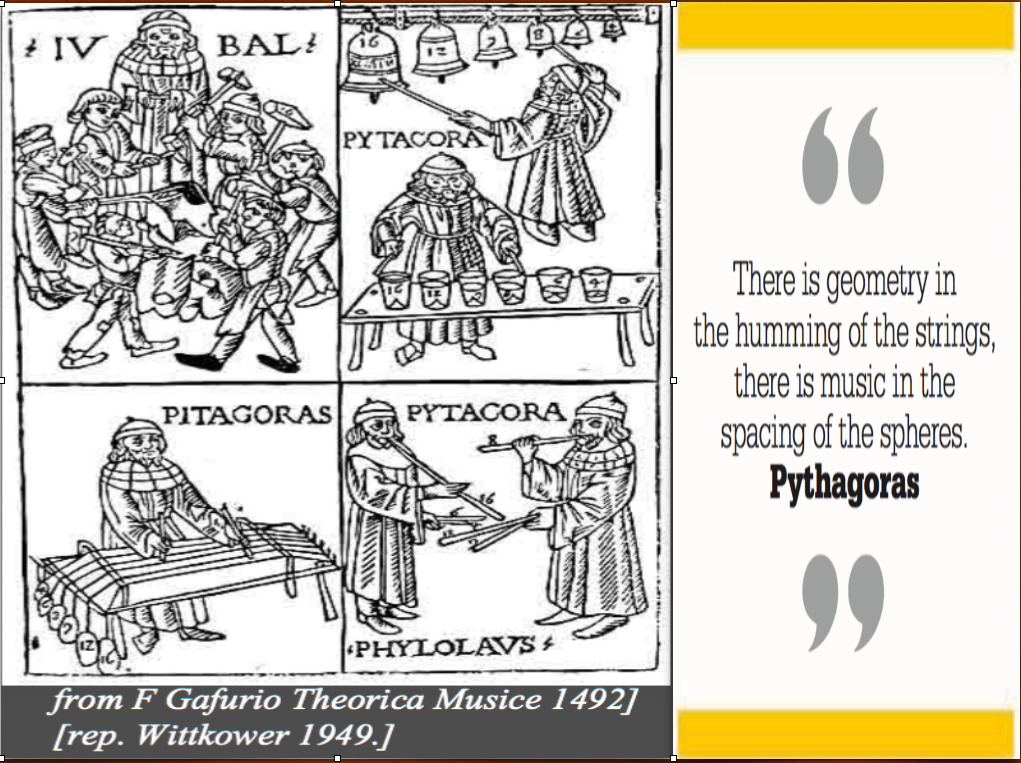
Heraclitus and Parminedes
Customary readings of early greek philosophy usually magnifies a polar philosophical persuasion between Heraclitus as the “philosopher of change” and Parminedes as the “philosopher of permanence”. Plato himself has an account of the contrasting conclusions of these thinkers. But contemporary readings of Heraclitus and Parmenides (by the German Martin Heidegger) renders this polar reading suspect and thus provide an account of convergence and even identity in their claims. It is, however, important to begin with the earliest account of Heraclitus and Parminedes.
As per the traditional customary reading of their existing fragments, Heraclitus is said to believe that “everything is flux”, that everything is Becoming, and hence always in a state of perpetual change. Parminedes, on the other hand, construes that Becoming is impossible, that everything is Being, and that all belong to a whole.
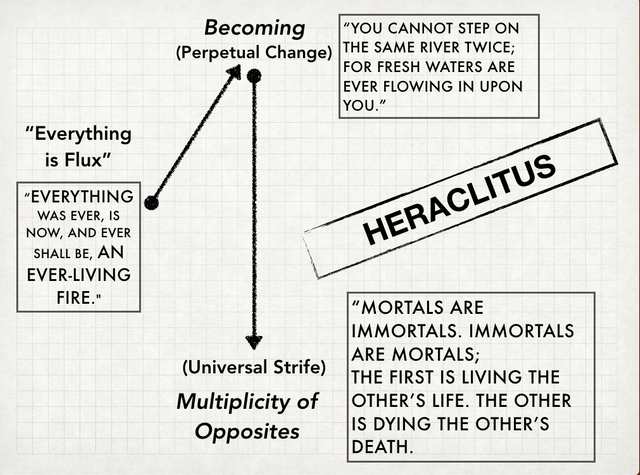
What is striking in the supposed contrast between these two claims is the fact that both make use of Logos (reason or logic) alone as method. That everything changes, for instance, is, for Heraclitus, deducible from the fact that everything exists in a “perpetual state of strife”, that oppositions (ex. hot-cold, day-night, good-evil) govern reality, thereby rendering existence as reducible into the multiplicity or plurality of opposites. This, for Heraclitus, signals that reality changes like a river upon which one cannot step twice, for always its waters are ever new.
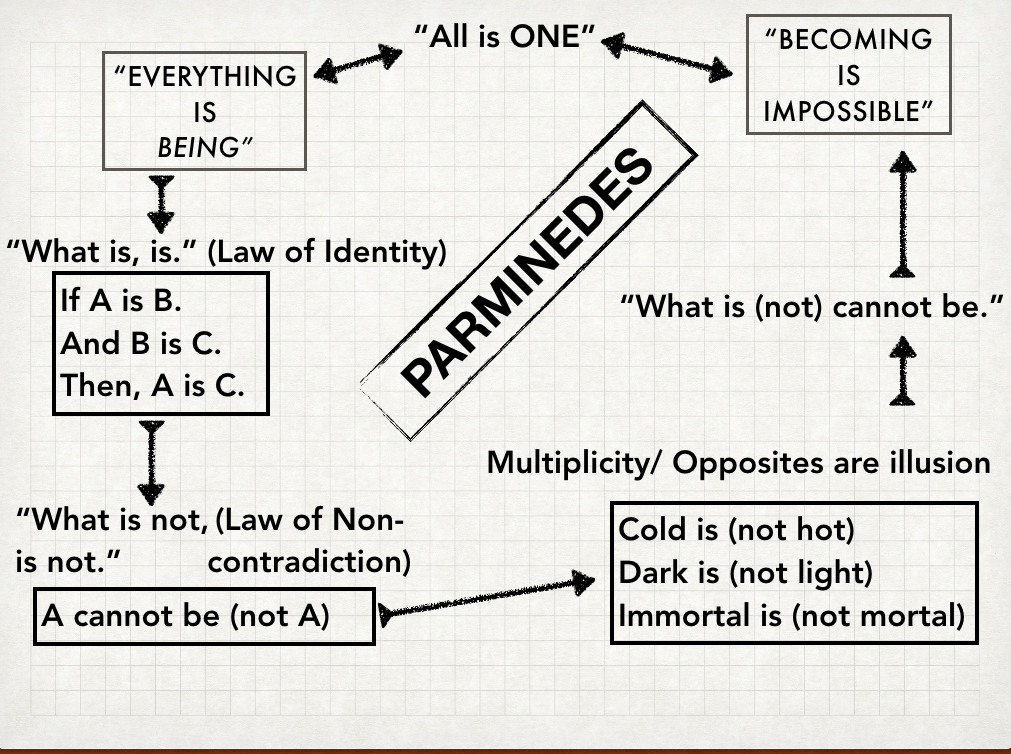
Parminedes, however, is said to reject Becoming (change) since, for him, there cannot be oppositions among things, and that, as per the “law of identity” and “law of non-contradiction”, only Being exists and it’s opposite, Non-being, cannot exist. Hence, “cold” is mere absence of heat, “night” is mere absence of day, while “good” is mere absence of evil. This implies that existence is Being, that everything belongs to a single whole, and that “all is one”. This “one” under which everything is whole is unchanging, undifferentiated, and complete.
How Original are the Greeks?
Aristotle, in his magnum-opus, The Metaphysics, considers the above mentioned claims of his predecessors as precursor to that attempt to know the “cause of things”, to that “art” (also translated as “science”) which he labels as “divine” and “most authoritative”, to Philosophy.
And there in lies the originality of Greek thought, it is neither only myth nor is it only science, but, in Aristotle’s words, it is both “divine and most authoritative of all sciences”.
_kristian

This is admirably clear and shows the exciting potential of steemit to become a resource for people drawn to the no man's land of philosophy. Thanks!
Yes, steemit is really a promising space for discourse and it is a "no man's land" too like philosophy 😀 Thanks for reading.
This post recieved an upvote from minnowpond. If you would like to recieve upvotes from minnowpond on all your posts, simply FOLLOW @minnowpond
This post recieved an upvote from minnowpond. If you would like to recieve upvotes from minnowpond on all your posts, simply FOLLOW @minnowpond
For the record, the term being translated as art/science is "techne", which most literally meant "human skill". It is a HUGELY important term that is often lost when discussing both art and science.
Good stuff @tianiclao
Thanks @gigantomachia. The Nuances of terms is always important in our field. Thanks for the reminder. 👍
Definitely @gigantomachia - and what a useful concept for getting a handle on our current situation ...
Congratulations @tianiclao! You have completed some achievement on Steemit and have been rewarded with new badge(s) :
Click on any badge to view your own Board of Honor on SteemitBoard.
For more information about SteemitBoard, click here
If you no longer want to receive notifications, reply to this comment with the word
STOPYes, it is quite possible that some the ancient Greek philosophy (and mathematics) was imported from India or Egypt.
Congratulations @tianiclao! You received a personal award!
You can view your badges on your Steem Board and compare to others on the Steem Ranking
Vote for @Steemitboard as a witness to get one more award and increased upvotes!